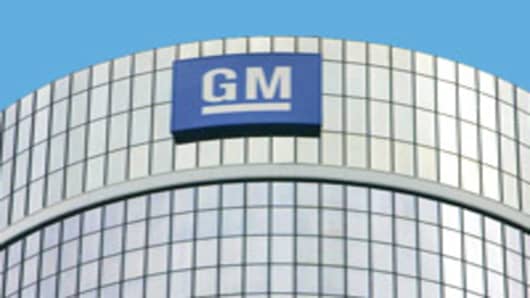General Motors, facing a sinking U.S. market for gas-guzzling trucks and SUVs, said Tuesday it will take dramatic steps to shift its focus to smaller vehicles and cut costs, including shutting down production at four plants in the U.S., Canada, and Mexico.
GM shares rose 2.3 percent before the market's open after the company laid out plans to respond to the shift in consumer behavior in the wake of record-high gasoline prices and improve its performance.
"We've...made a lot of progress on our North American turnaround plan," said CEO Rick Wagoner, speaking to reporters ahead of the company's shareholder meeting in Wilmington, Del. "We've been moving very well on that track, but recent developments on the global oil scene have made it necessary for us to take additional actions."
The company plans to close four plants in a move that is expected to save the automaker $1 billion a year in addition to the cost savings it has announced in recent months.
Those plants include a full-size pickup factory in Oshawa, Ontario. It also will stop making SUVs at factories in Moraine, Ohio, and Janesville, Wis., and it will stop making mid-size pickups in Toluca, Mexico.
GM also plans to add third shifts at two plants in Michigan and Ohio. These plants make the Chevrolet Malibu and the Chevrolet Cobalt, which have been selling better as consumers begin to favor smaller vehicles.
The company also is weighing options for its Hummer line of heavy trucks and may discontinue the brand.
It also approved funding for its Chevy Volt hybrid electric car, and will begin building a subcompact car, the Chevy Aveo, at its Lordstown, Ohio, plant in mid-2010.
"These higher gasoline prices are changing consumer behavior, and rapidly, significantly affecting the U.S. auto industry sales mix," Wagoner said. "We at GM don't think this is a spike or a temporary shift. We believe that it is, by and large, permanent."
Wagoner said GM, which has lost a combined $51 billion over the past three years, was not ready to detail a timeline for returning to profitability.
Some analysts questioned whether the embattled automaker had moved too slowly, particularly with regard to weighing its options for Hummer.
"Unfortunately, it's just a sign that once again they're behind the curve," said Peter Jankovskis, a chief investment officer with OakBrook Investments, which owns GM shares in some of its portfolios.
"If they were looking to sell the Hummer brand, the more sensible thing would have been to do it three years ago. They're not going to get anything for it. Just in terms of timing, it's a very poor example," he said.
GM said last week that about 19,000 U.S. factory workers -- just over a quarter of its American blue-collar work force -- had taken buyouts to leave its payroll.
GM's U.S. sales have dropped by almost 12 percent through April, a month that saw the industry's weakest sales since 1998. May U.S. sales, set to be announced on Tuesday just after GM's restructuring news, are expected to be as weak or weaker, with an even sharper drop in sales of more profitable trucks.
GM shares have dropped almost 60 percent since October, when the UAW contract was ratified. The top U.S. automaker, which has been eclipsed by Toyota Motor in global sales has a market value of just 5 percent of Toyota.


